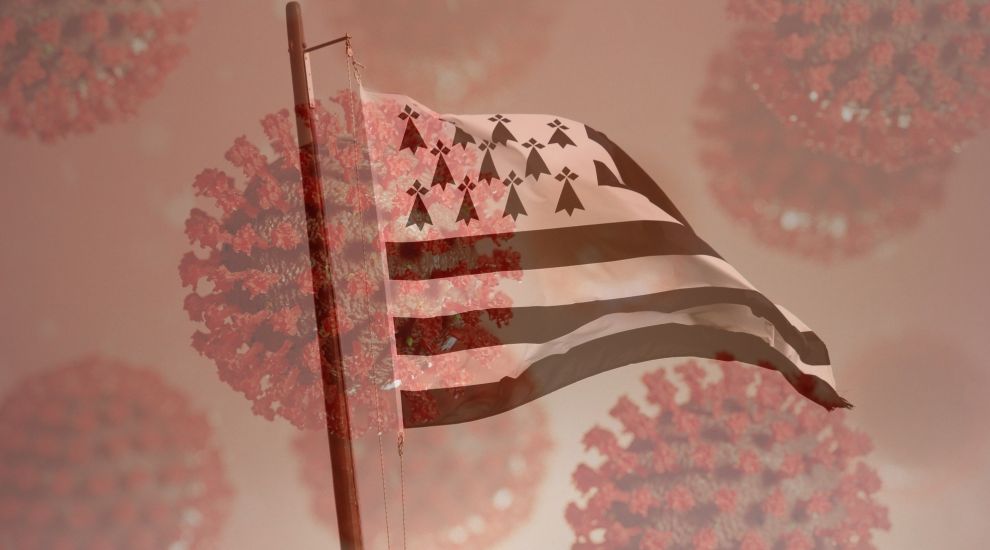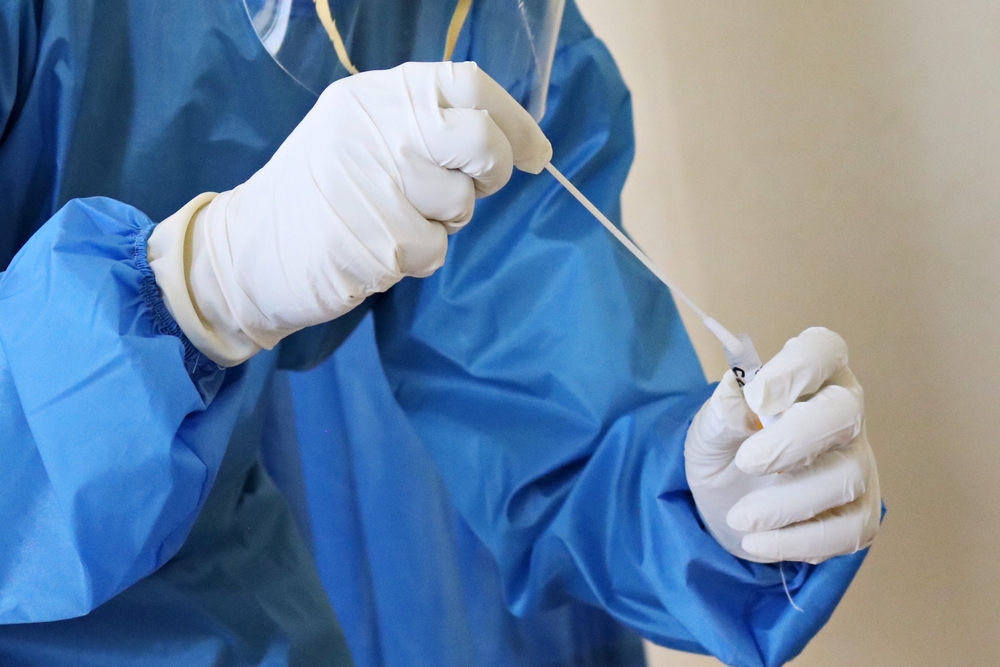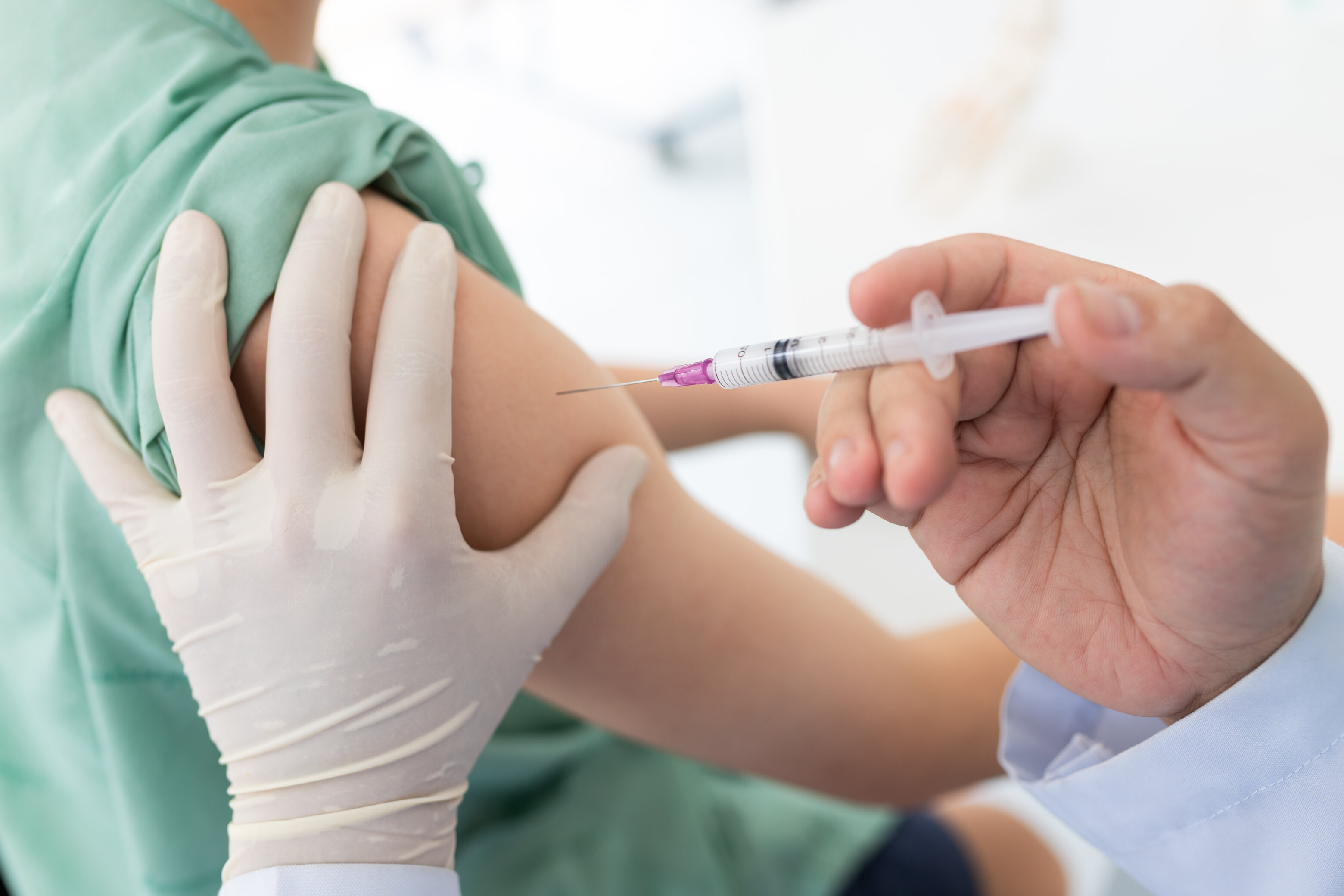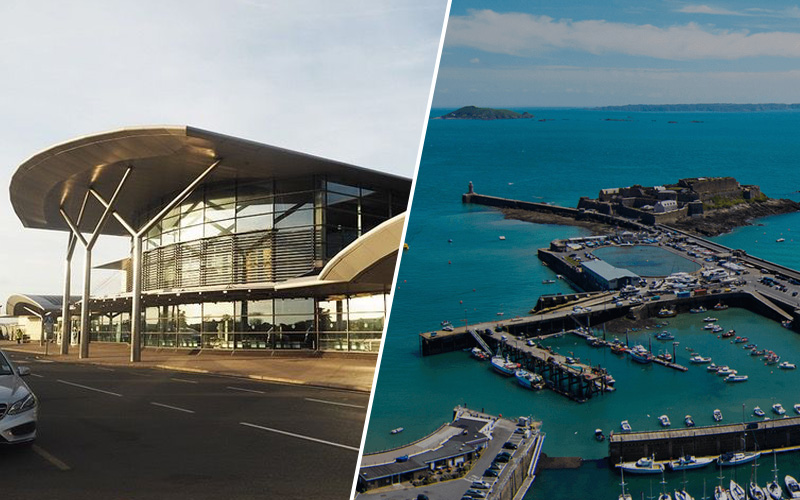


France has detected a new strain of covid-19 in the Brittany region that appears to evade swab testing – just days ahead of an announcement on plans to reopen Jersey’s borders.
While the ‘Breton variant’ isn’t believed to be deadlier or more contagious, it appears to avoid detection with PCR tests, which involve swabbing the throat and nose.
Such tests are used at Jersey's borders to rapidly identify new cases and clamp down on transmission in the community.
French health authorities said that a cluster of eight cases was discovered in a hospital in Lannion, a northwestern town in Côtes d’Armour, Brittany, on 13 March.
While each of the patients returned a negative PCR test, their infections emerged after sequencing of their swab samples.
It is believed to be the first instance that covid-19 has mutated in a way that can avoid testing.

Pictured: Patients with the Breton variant returned negative PCR tests.
The Breton strain has now been officially classified a “variant under investigation” by France’s health ministry.
“Initial analysis of this new variant has been unable to draw conclusions about its severity or transmissibility in comparison to the historic virus. In-depth investigations are underway to better understand this variant and its impact,” officials said.
They added that research into the Breton variant’s reaction to the vaccine and antibodies developed during previous covid infections was being undertaken.
International health authorities have been alerted, though the Breton variant is not considered to be of concern like the more transmissible UK, South African and Brazilian variants.

Pictured: French researchers are trying to find out how the Breton variant responds to the covid vaccine.
Côtes d’Armour has since responded by making outdoor masks compulsory across the département – rather than in some towns – and has cancelled vintage markets and jumble sales.
Commenting on the variant, Jersey's Deputy Medical Officer of Health, Dr Ivan Muscat, said: "Viral mutations happen all the time and for covid-19, this is no different. Variants of concern are singled out when their properties are considered to cause greater risk to public health for example, the Kent, South African and Brazilian variants.
"The variant found in Brittany has not been found to cause more severe disease or proven to be more transmissible so it is unclear if this is going to significantly spread. However, it was not picked by the usual initial testing and it is anticipated that Brittany will be looking at the current systems to ensure that this new variant is identified."
He added that "similar consideration will be given to the newly described Finnish variant", going on to say: "We are of course also looking at our systems to ensure that we pick up any variants should they enter Jersey.
"The presence of variants are acknowledged throughout the stages of planning, recommending and agreeing public health mitigations and measures. There is no immediate evidence that this new Breton variant will impact on the progress of Jersey's roadmap for reconnection but we will be keeping a close eye on all new information presented.
"Vaccination remains the best way of managing covid-19 and reducing the emergence of variants. I would strongly encourage people attend for vaccination when invited to do so."
News of a new variant around just 40 miles away from Jersey comes ahead of a Government press conference this Friday announcing plans to reopen the island’s borders.
Currently, everyone arriving in Jersey can only leave quarantine after returning a negative Day 10 test.
On Monday, the Government’s scientific advisory panel met to discuss how to reopen and whether the ‘traffic light’ system should be reintroduced. They passed their advice to Ministers, who came to a decision this week. They’ll be announcing their plans at 16:00 on Friday in a briefing that will be live-streamed on social media.
A press conference will take place at 4pm on Friday 19 March, where Ministers will provide an update on the Island’s reconnection strategy, including plans for the safe reconnection of travel to Jersey. pic.twitter.com/Ar3VznThgr
— Government of Jersey (@GovJersey) March 16, 2021
Guernsey announced its own plans to resume commercial travel last week.
Under the plans, there will be no restrictions on inter-island travel within the ‘Bailiwick Bubble’ – Guernsey, Alderney, Sark and Herm – from 22 March.
Five weeks later – from 30 April – non-essential travel from outside the Bailiwick will be allowed, although there will be additional measures depending on where the traveller comes from and how serious the prevalence of covid there.
The regions fall into four broad categories, based on increasing levels of prevalence. Travellers from a Category 4 region, for example, will be tested on arrival and on day 13 of a 14-day period of self-isolation. Anyone declining a test will need to self-isolate for 21 days.

Pictured: Guernsey will allow restriction-free travel within the 'Bailiwick Bubble' from 22 March.
If all goes well, Bailiwick borders will re-open fully on 1 July, with no country or regional variations. However, this will still be subject to the first phase of Guernsey’s vaccine programme having been delivered and the first doses within the second. A single test at the border, or administered pre-travel, may still be needed, depending on Public Health concerns.
Ferry provider Condor welcomed the news, having days earlier said that it would be removing the requirement for passengers to get a negative PCR test in advance of travelling with them when they plan to restart their services in May.
Comments
Comments on this story express the views of the commentator only, not Bailiwick Publishing. We are unable to guarantee the accuracy of any of those comments.